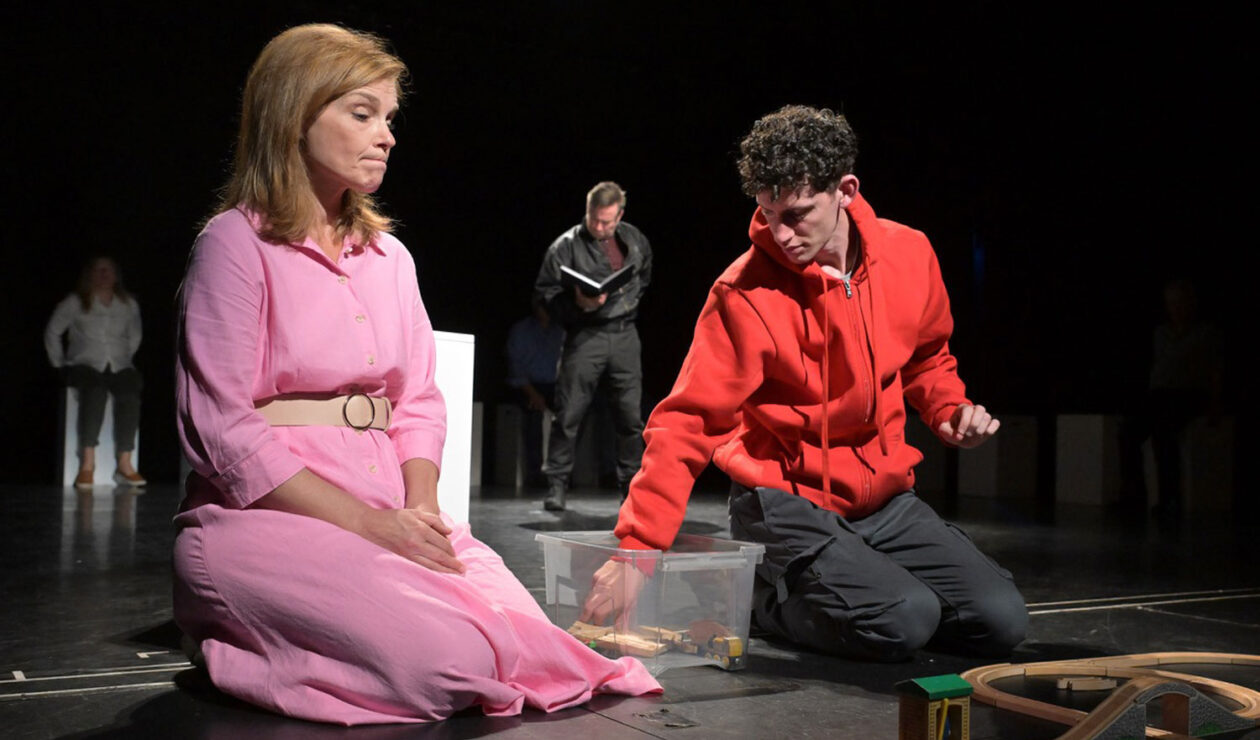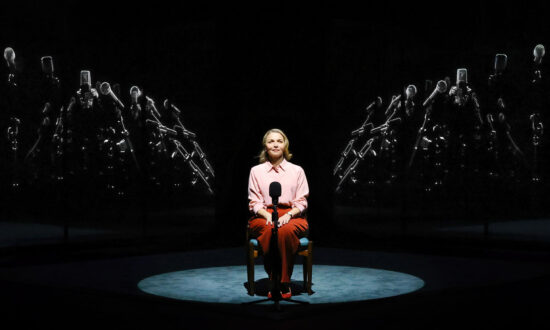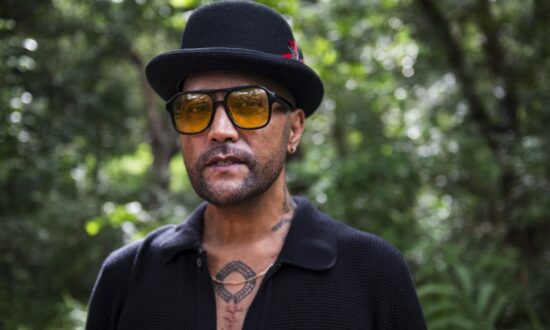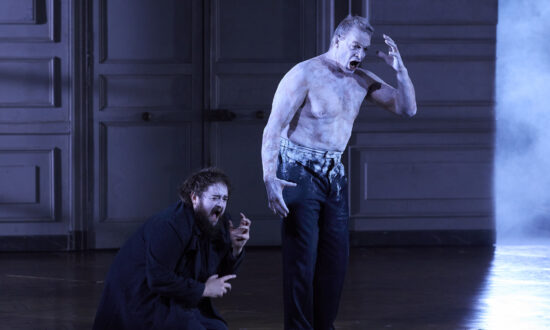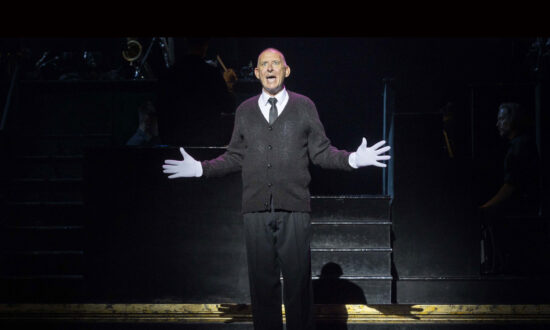With more than two million copies sold, Mark Haddon’s 2003 novel The Curious Incident of the Dog in the Night-Time is that rare work of art intended for young adults, but equally and enthusiastically embraced by an adult readership. It turns out grown-ups don’t mind relating to a misunderstood 15-year-old protagonist, so long as their story is told with overarching tenderness, a bit of humour and philosophical grit.
Presented by The Flying Elephant Company and Limelight Theatrics – two South Australian production companies invested in youth performances – this stage adaptation, now playing at Goodwood Theatre, sticks to the formula, with a result as satisfying as the show’s title is long.
The play opens with a handful of neighbours standing around a murdered dog, a pitchfork stuck into its lifeless form. We are thrust into immediate shock, and when we see the distress this causes the boy accused of the crime, his rocking back and forth as he crouches on the ground, his non-verbal and verbal denials melding together in rising tones, the discomfort in the room is palpable.
No, young Christopher did not kill the dog, and we know this because he tells us he never lies, but he is a pariah and easy to blame. As he sets off to find the dog’s true assassin, we enter into a whodunnit story, though its twists and snakes lead us to a place we couldn’t have imagined.
Christopher is neuroatypical. He does not like to be touched and he most definitely abhors the colour yellow. When stressed, he might groan, pace, hit and yell.
We don’t need to name his disorder; Haddon never did and the play similarly does not. In fact, the most socially unacceptable trait of Christopher’s is his innate inability to lie, and seated beside his untrustworthy though well-meaning parents who do nothing but cheat and lie, this unlabelled disability becomes a super-ability and works as a metaphor for the human condition.
Another thing Christopher cannot tolerate is metaphor, so the whole concept becomes self-reflexive – it’s that philosophical grit hard at work, yet presented effortlessly, and it’s very, very clever.
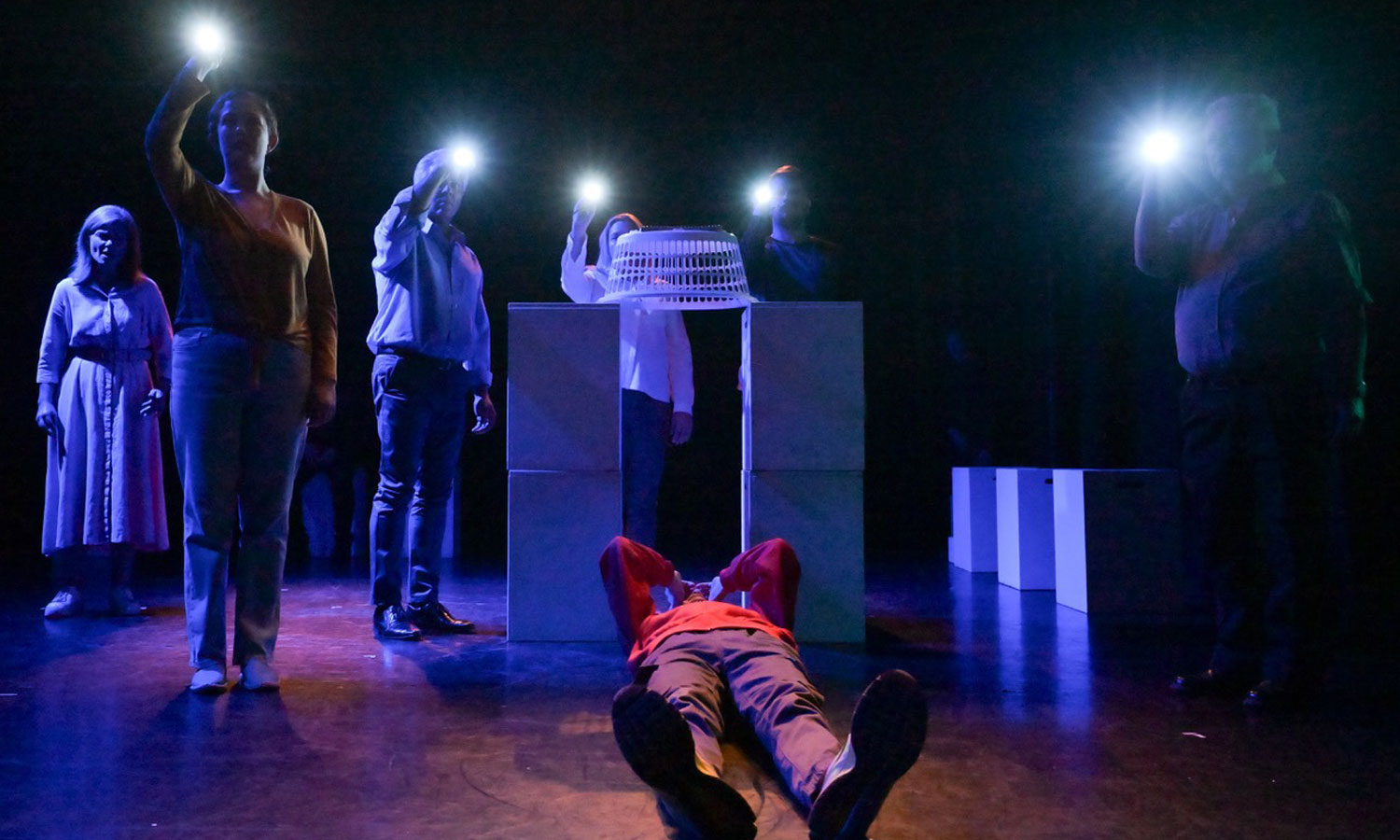
Minor characters become part of the play’s set design. Photo: Greg Adams
Christopher’s story is a coming-of-age one, where his astonishing bravery and risk-taking leads him on adventures he doesn’t really want to have but must, and in that light, it’s a feel-good story. But the play isn’t submissive to feel-good cliches, and nowhere is this truer than in the characters of Ed and Judy Boon, Christopher’s parents. We cannot believe this small family’s life will ever be smooth, no matter how big our smiles at the show’s end. Much of this has to do with the three main actors: Benji Riggs in a convincing and courageous portrayal of Christopher; Brendan Cooney as hard-done-by father who we can’t help but empathise with despite his explosive tendencies; and Nicole Rutty as Christopher’s neglectful mother, whose exhaustion and frustration come off as so embodied we almost feel them with her. When any or all of the three actors are on stage, the effect is immersive.

Get InReview in your inbox – free each Saturday. Local arts and culture – covered.
Thanks for signing up to the InReview newsletter.
Because every minor character is always in the background, immersion is both desired and needed. In the director’s notes, Nick Fagan stresses the production’s limited resources, and this is exceedingly apparent in the set design and props, which are together made up of those minor characters. If Christopher says he came home from school and fed his rat, a character playing three other roles will bring the rat seed to Christopher centre-stage, then step back to their position sort of in-and-out of the shadows, then seat themselves on a white box that opens and holds other props. For a mind crowded with numbers and equations, such as Christopher’s, the set is uncommonly minimalistic, and for someone who wishes to be alone, it’s unnecessarily crowded. It’s a strange combination.
There are some other dubious aspects, like a breaking of the fourth wall, which some might love and others might find distracting (it happened in the original 2014 version of the play, too), but these don’t get in the way of an ultimately praiseworthy night of theatre.
This is community theatre that makes the audience both think and feel, where the dots aren’t connected for you and the a-ha moments are more rewarding for it. It’s art that sticks.
The Curious Incident of the Dog in the Night-Time is playing at Goodwood Theatre until April 13.
Support local arts journalism
Your support will help us continue the important work of InReview in publishing free professional journalism that celebrates, interrogates and amplifies arts and culture in South Australia.
Donate Here
